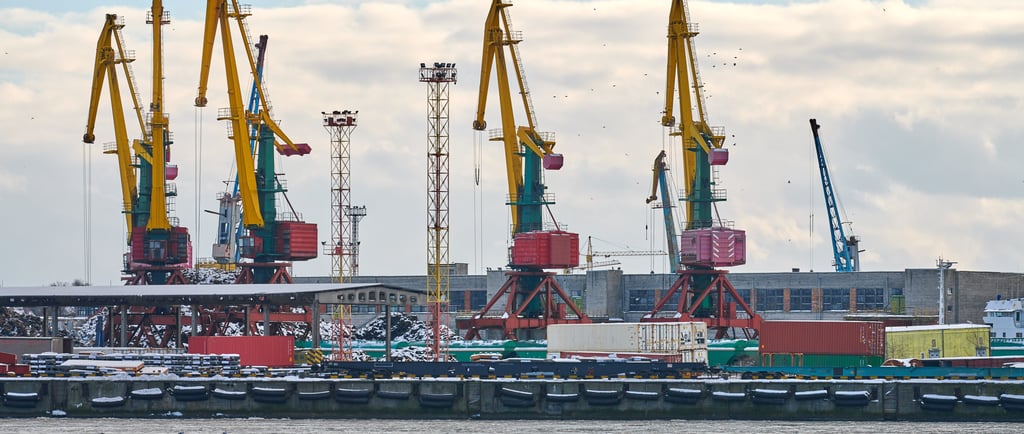Post-Industrial Argentina & Modern Times
Explore Argentina’s evolution in the post-industrial era, from economic shifts and political change to emerging industries and social movements shaping the country's modern identity.
HISTORY
4/11/20253 min read


Argentina’s evolution throughout the 20th and 21st centuries reflects a nation caught between the weight of its past and the demands of a changing world. Once seen as a rising star among global economies, Argentina long envisioned itself as the world’s provider of agricultural commodities—a role that seemed sustainable and stable in earlier times, especially under the influence of agreements like the Roca-Runciman Treaty with Britain in 1933. That vision, while advantageous then, has complicated the country’s efforts to adapt in a post-industrial age.
The Decline of the Industrial Golden Age
In the first half of the 20th century, Argentina was among the most prosperous nations, built on a booming agricultural export sector and bolstered by early industrialization. The Roca-Runciman Treaty further solidified Argentina’s role as a reliable supplier of meat and grain to the British Empire—deepening its dependence on commodity exports.
From the 1930s to the 1970s, the country pursued Import Substitution Industrialization (ISI), nurturing local industries, expanding employment, and creating a thriving middle class. However, the late 20th century brought dramatic shifts:
The late 1970s ushered in economic liberalization, exposing domestic industries to global competition they weren’t ready for.
The 1980s debt crisis and military dictatorship eroded economic stability.
In the 1990s, neoliberal reforms under President Carlos Menem, including widespread privatizations, hastened Argentina’s transformation into a post-industrial, service-oriented economy.
The 2001 Crisis and Its Aftermath
The collapse of Argentina’s economy in 2001–2002 was a turning point:
Unemployment and poverty soared.
The peso was devalued after a decade of being pegged to the U.S. dollar.
Protests and political turmoil led to the resignation of several presidents in just a few weeks.
Despite the chaos, Argentina saw a strong recovery during the 2000s, driven by:
A boom in agricultural exports (especially soybeans).
Increased state intervention, including subsidies and social programs.
Re-industrialization efforts, though limited compared to the past.
However, persistent issues like inflation, foreign debt, and currency instability remained key challenges.
The Rise of the Knowledge Economy and New Industries
In recent years, Argentina has developed vibrant sectors outside of traditional industry, including:
Technology & Startups: Argentina has become a tech hub in Latin America, producing several "unicorn" startups such as Mercado Libre and Globant.
Creative Industries: Design, cinema, music, and publishing are thriving, especially in cities like Buenos Aires.
Tourism: Cultural and eco-tourism continue to grow, though affected by macroeconomic fluctuations and global events like the COVID-19 pandemic.
Still, high taxes, unstable regulations, and currency controls create uncertainty for businesses and investors.
Society and Shifting Values
Urbanization has shaped Argentina’s identity, with over 90% of its population now living in cities. Meanwhile, powerful social movements have reshaped the cultural landscape:
Feminist activism played a major role in legalizing abortion in 2020.
Indigenous rights, environmental concerns, and climate awareness are gaining ground.
Economic and political debates remain deeply polarized, as the country swings between populist and market-oriented leaderships.
A Nation in Search of Itself
For all its transformations, Argentina still struggles to fully move beyond its past identity. The long shadow of the Roca-Runciman Treaty lingers—not in its direct terms, but in the mindset it reinforced: that Argentina’s destiny is to feed the world. That self-image as the granero del mundo (breadbasket of the world) continues to shape national narratives, often at the expense of envisioning a more diversified and resilient economy.
Conclusion
Argentina’s post-industrial era is a story of contradictions: tradition and innovation, wealth and crisis, potential and stagnation. At its core lies a country that has never fully redefined its place in the global economy, clinging to an outdated role that once promised stability. As the world moves forward—digitally, environmentally, and economically—Argentina must confront a fundamental question: can it finally let go of its 20th-century self-image and imagine a new future? Until then, it remains a nation rich in resources and talent, yet still in search of its modern identity.
Looking for expert guidance to find the best and most reliable sources on Argentine history? We're here to help — contact us today!
Discover new topics in the editorial repository of Know Argentina
Know Argentina
Discover diverse insights about Argentina's rich culture.
Connect
stay in the loop
info@knowargentina.com
© 2025. All rights reserved.
